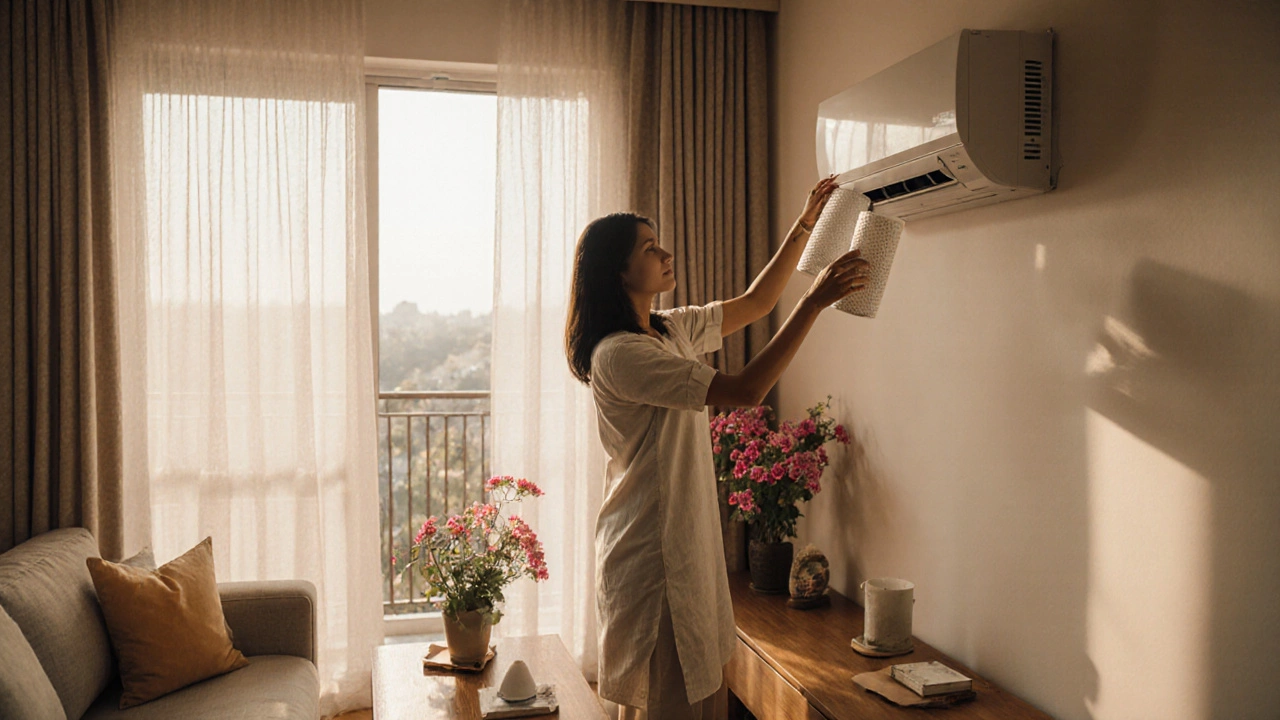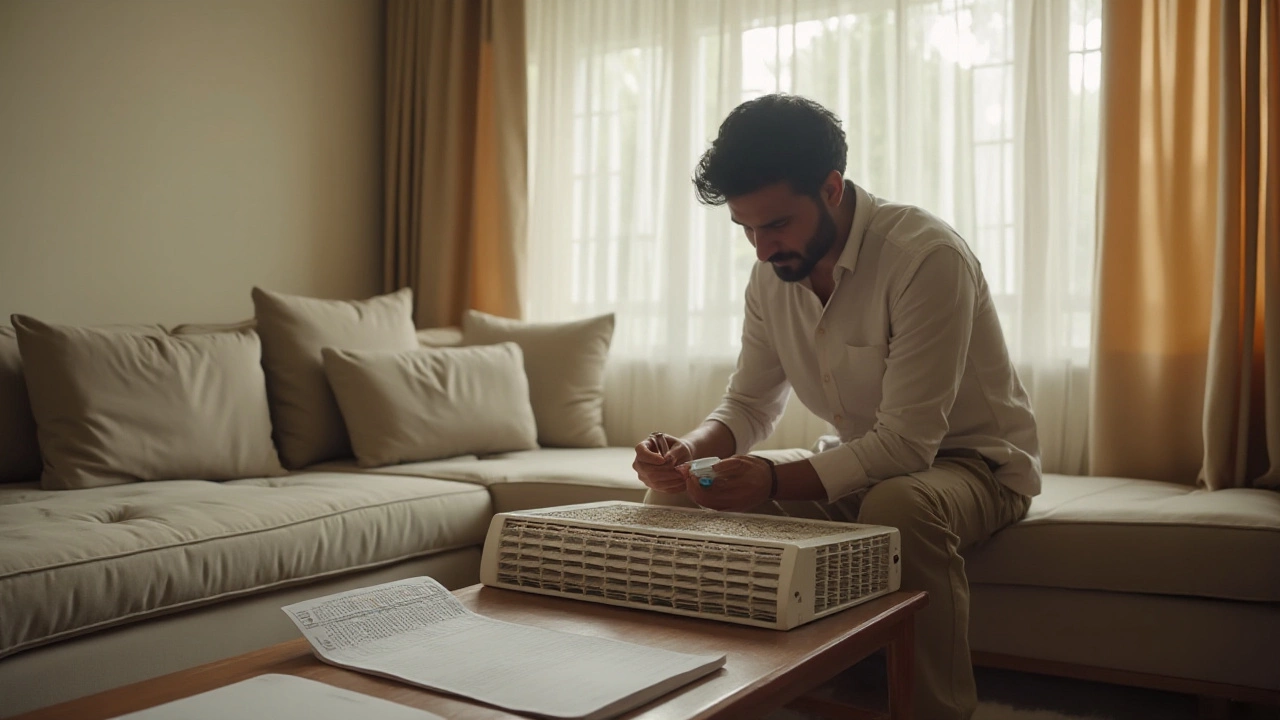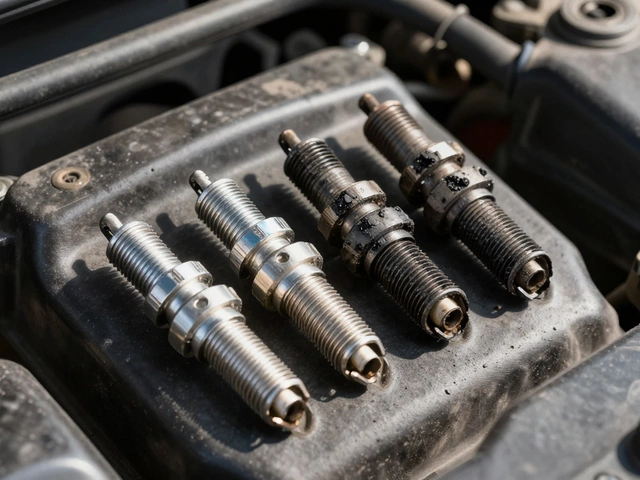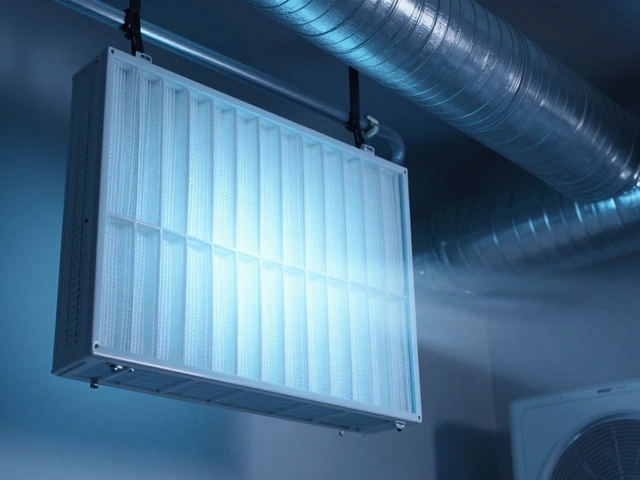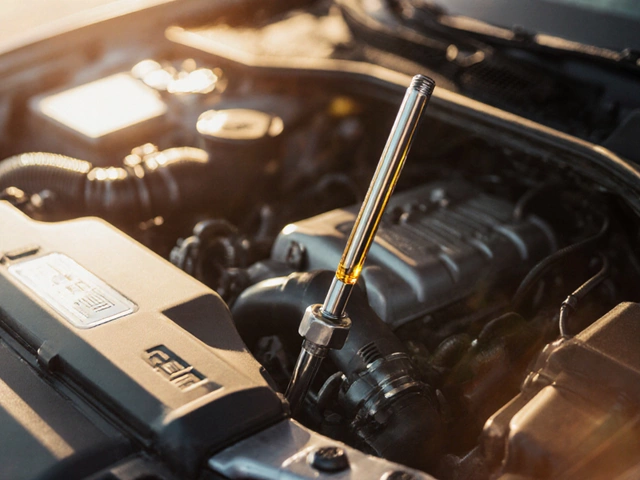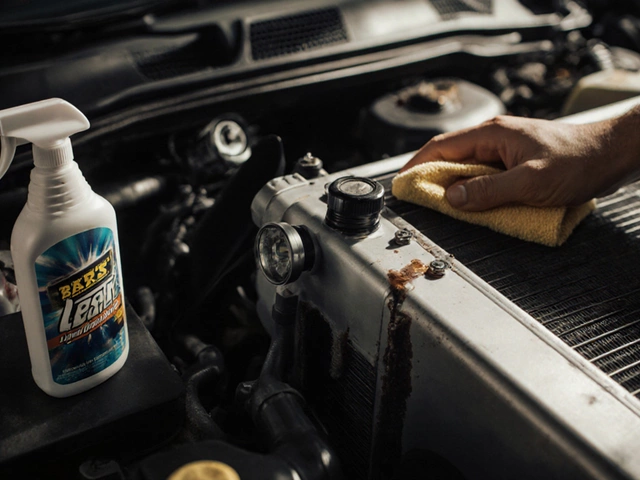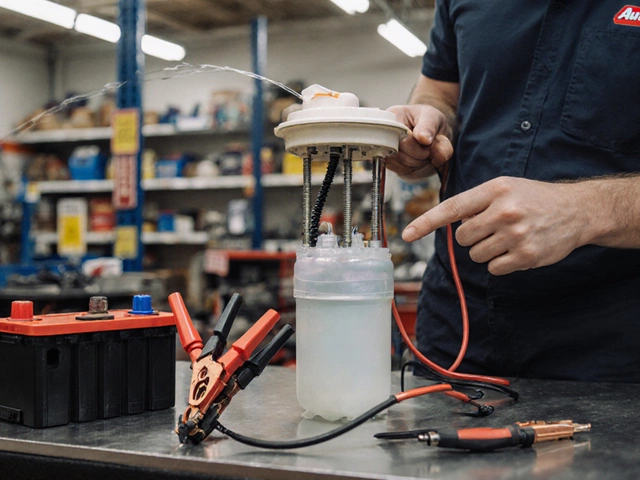Home Improvement: Simple Air Filter Tips for Better Indoor Air
Ever wonder why your HVAC seems to work harder some months? The answer often lives in the air filter. A dirty filter cramps airflow, bumps up your energy bill, and lets dust settle everywhere. Below you’ll get the quick, hands‑on advice you need to keep your filter—and your home—running smooth.
How Often Should You Clean or Replace Your Filter?
There’s no one‑size‑fit rule, but a solid rule of thumb is to check the filter every month. If you have pets, live in a dusty area, or run the system daily, aim for a four‑week swap. For lighter use, eight weeks might be enough. Most filters come with a visual cue: if the material looks gray or clogged, it’s time for a change. A quick visual check can save you weeks of wasted energy.
Choosing the Right Filter: MERV vs. Polarized
Not all filters are created equal. MERV ratings tell you how many particles a filter can trap. A MERV 11 filter catches most allergens and fine dust without choking airflow, making it a popular middle ground. If you want top‑level protection, higher MERV numbers exist, but they can restrict airflow and make your system work harder.
Polarized filters use an electric charge to attract particles. They do a good job at grabbing microscopic stuff, but they’re pricier and need more frequent cleaning. If you’re on a budget, stick with a quality MERV 8‑11 filter and replace it regularly.
So, how do you know a filter is failing? Look for these tell‑tale signs: a sudden spike in energy bills, weaker airflow from vents, or a dusty layer on furniture after you’ve run the system for a while. Unusual noises—like whistling or rattling—can also mean the filter is restricted.
When you spot any of these clues, grab a fresh filter and swap it out. It’s a quick job: shut off the system, slide the old filter out, note the direction arrows, and slide the new one in. Turn the power back on and feel the difference in a few minutes.
Regular maintenance doesn’t just keep your home comfortable; it protects your furnace and AC from premature wear. A clean filter means the motor doesn’t have to struggle, extending its life and keeping repair costs low.
Bottom line: check your filter monthly, replace it every 1‑3 months depending on use, and pick a filter that balances filtration with airflow. A few minutes of effort each month pays off with cleaner air, lower bills, and a happier HVAC system.
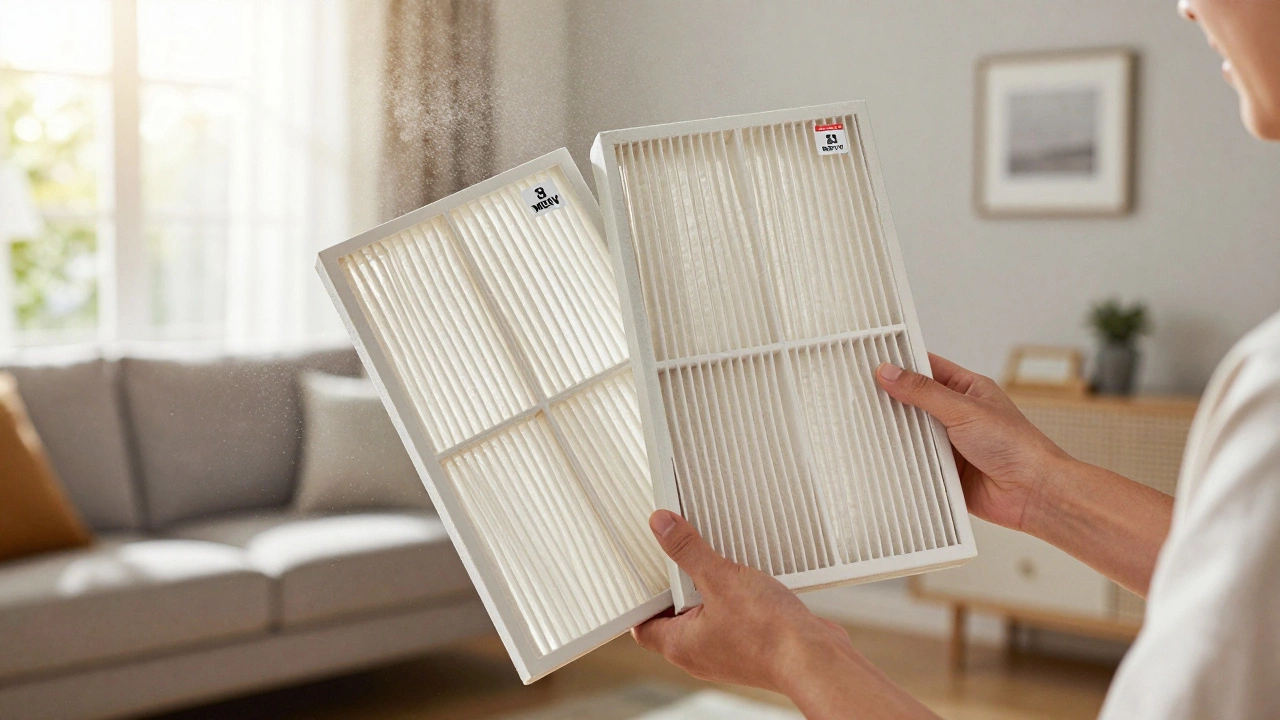
Merv 8 vs Merv 11 Air Filter: Which One Actually Works Better for Your Home?
Learn whether MERV 8 or MERV 11 air filters are better for your home. Get real-world advice on efficiency, cost, health benefits, and HVAC compatibility-no fluff, just facts.
CONTINUE READING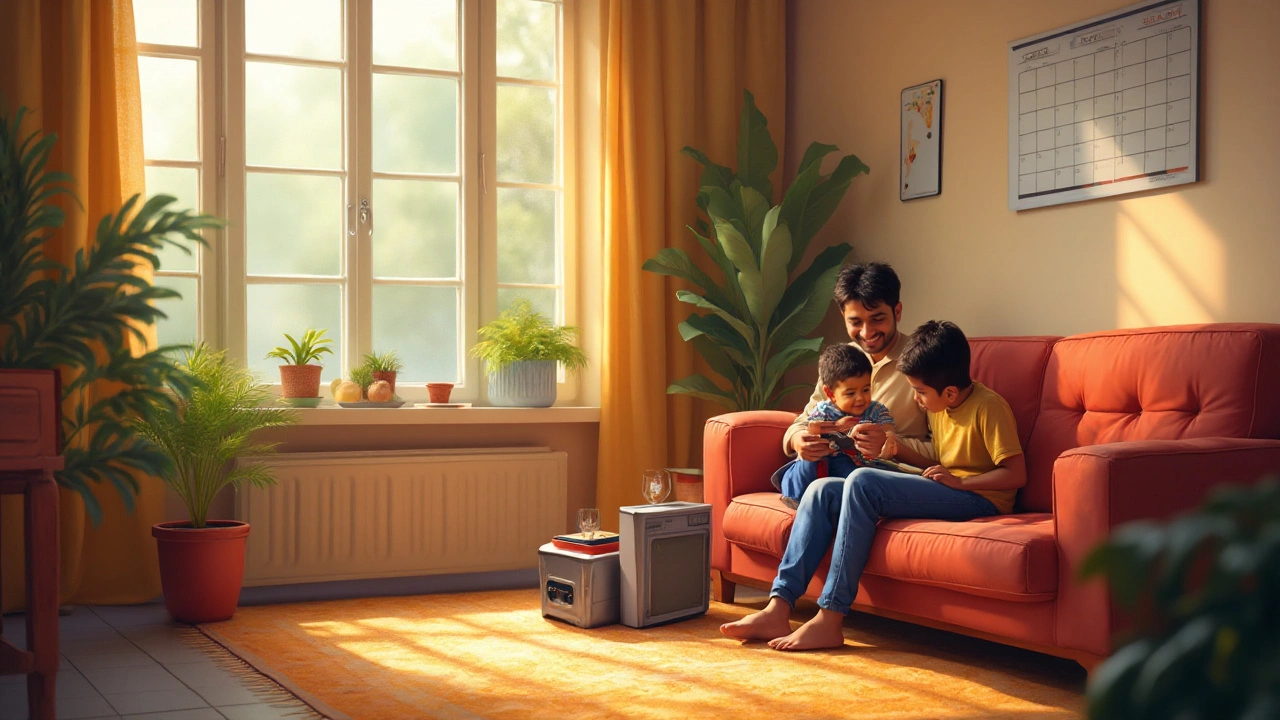
Essential Guide: How Often to Clean Your Air Filter for Optimal Performance
Air filters play a crucial role in maintaining indoor air quality, yet many homeowners neglect their maintenance. This article delves into how often you should clean or replace your air filter based on various factors like environment, usage, and type of filter. By understanding these elements, you can ensure that your home remains a safe and comfortable environment while also potentially saving on energy costs. Gain insights and practical tips for extending the life of your air filter, responding to changing needs throughout the year.
CONTINUE READING
Essential Signs Your Air Filter Needs Replacement
A clean air filter is crucial for maintaining good air quality in your home and ensuring your HVAC system functions efficiently. Recognizing when your air filter needs changing is vital, and various indicators such as dust accumulation, increased energy bills, and unusual noises can help determine the need for a swap. Regular maintenance of air filters not only keeps your home environment healthy but also avoids unnecessary costs in the long run. Understanding how to check and replace your air filters ensures a safer and more comfortable living space. In this guide, we'll delve into the signs, benefits, and steps to effectively manage your air filter maintenance.
CONTINUE READING
Understanding the Downsides of Polarized Air Filters
Polarized air filters are becoming popular in households due to their efficiency in trapping particles, yet they come with certain drawbacks. While they enhance air quality by attracting charged particles, they require regular maintenance and can be costlier than traditional filters. It's important to understand these aspects for better decision-making on home air quality. Exploring these filters' effectiveness versus cost can help consumers choose wisely.
CONTINUE READING